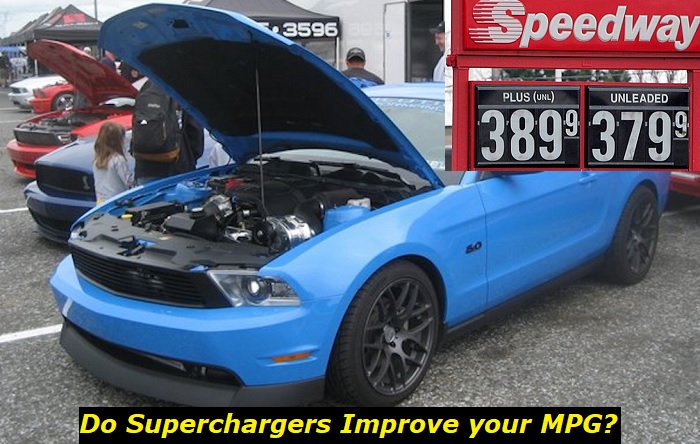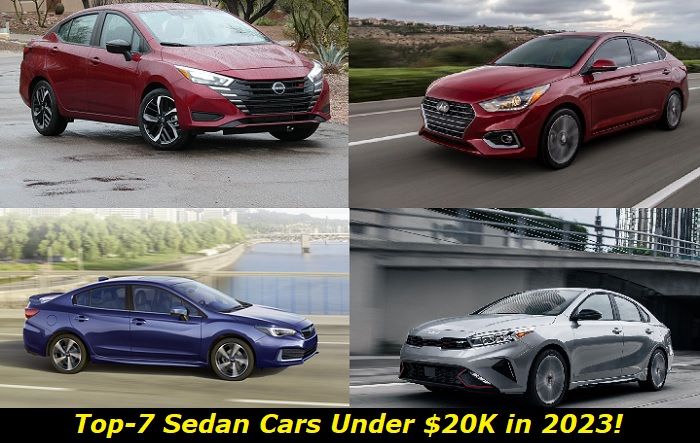If you're looking to boost your engine performance, you might have stumbled upon a supercharger. Many sources claim that this is one of the best value-for-money options to increase your horsepower. But what many of them fail to mention is one major drawback - poor MPG.
Engine upgrades highlights
- Commonsystems:fuel supply, air supply, exhaust, software
- Average prices:$500 - $6,500
- Average waiting time:1 - 21 days
- Commonreasons:higher power and torque
- DIY mods:just minor things, usually plug & play
- Level of satisfaction:medium

What Is a Super Charger And How Does It Work? Basics Explained
The arrival of the internal combustion engine has revolutionized transportation. The concept is simple. Such an engine sucks in air, compresses it, and then ignites the mixture of fuel and air. The residue then leaves via an exhaust pipe.
It is this combustion that moves the piston. This movement is then transferred all the way to the wheels, making them turn. The amount of horsepower thus depends on the volume of the combusted air-fuel mixture.
The limiting factor of this volume is the engine size itself. A bigger engine can hold more air-fuel mixture and thus produces more horsepower. But this isn't always an option. An engine can't be too big or it won't fit in the car.
You think more fuel would also produce more horsepower. However, this is only true if there is enough air to ignite the fuel in the combustion chamber.
Thus, people looked elsewhere for a solution. And they found one, relying on the fact that gases can be compressed. When you increase the pressure, you squeeze air molecules together. This effectively increases the volume. Combined with higher fuel intake, this results in more horsepower.
A supercharger achieves just this. It is one of the several forms of forced induction. This device is connected directly to the engine - it's attached to its crankshaft via a belt.
Why Does a Supercharger Decrease Your MPG? 2 Ways Superchargers Lower Your Fuel Economy
Although supercharges are generally reliable, they have one major drawback - they decrease your MPG. And since the gas price keeps rising, this is often enough to make you think twice about getting one.
Superchargers increase your fuel consumption in the following 2 ways:
- More air calls for more fuel
A form of forced induction, the supercharger compresses the intake gas and draws more air into the engine. This generates more energy and thus increases horsepower.
However, the extra air is meaningless without sufficient fuel. The air-fuel mixture has a specific ratio for achieving optimal results. Therefore, the supercharge forces the engine to draw in more fuel to compensate for the extra air.
- Superchargers draw power from the engine
Don't forget that supercharges don't generate any energy on their own. They rely solely on the engine to function.
Since the supercharger takes some of the energy away from the engine, less remains for the wheels. This would mean poorer performance. However, the engine compensates for this performance loss by drawing more fuel.
This is sometimes referred to as parasitic loss.
How much MPG can you expect with a supercharger?
A decent car should have an MPG higher than 30. However, a supercharged engine consumes much more fuel. The average MPG you can expect is thus 25. In some cases, it can fall as low as 20 but it initially was 30 without a turbo.
Consider driving the same distance with a regular engine and a supercharged one. A regular one might eat one fuel. But the supercharged one will always consume more for the same distance.
This is because supercharges draw power from the engine to function. They also force it to use more gas to balance out the air-fuel mixture.
What Are Some Other Disadvantages of Using a Supercharger?
Superchargers have one other major drawback - they cause overheating.
Superchargers are meant to create more energy. While they achieve this end, not all of this energy translates into motion. A lot of it releases in the form of heat. The engine isn't designed to withstand such high temperatures and might thus wear down faster.
For this reason, we recommend against driving a supercharged car for too long. The longer you drive it, the sooner it will overheat.
Is The Supercharger On All the Time?
In light of all these issues, you might be wondering if you can turn your supercharger off. After all, you might not need it all the time. And if you could turn it on, you can improve your fuel economy and avoid dangerous overheating.
Since it is connected directly to the engine, it starts up together with your vehicle. But you won't notice any effects below 1,500 RPM. Until you pass this value, it won't do much for you.
Some car models come with an electromagnetic supercharger clutch. With it, you can turn the supercharger on and off as you please. If you do plan to buy a car with a supercharger, we recommend this option. It will allow you to turn it off when you don't need it. Thus, you won't have to worry about poor MPG and overheating as much.
Why Do People Use Supercharges Even If They Don't Increase Your Fuel Economy (MPG)?
Supercharges are popular mainly in the car racing scene. Every car racer strives to win and to do that, they need to be fast. A supercharger helps with this by increasing the engine's horsepower.
But is it truly worth it? After all, more horsepower always means more fuel used. This means the racer has to refuel more often.
Still, superchargers can be beneficial despite the decrease in MPG for several reasons:
- Easy Installation
Since a supercharger is an external device, you can install it at home. While it does require some mechanical know-how, it's still a walk in the park compared to other alternative forms of HP boosts.
- Low Cost
Supercharges aren't expensive, especially when compared to other boosts. This is probably the main reason why they are such a popular option.
- No Delay
Supercharges provide an almost immediate boost because they are attached directly to the engine. Other forms of boosts, such as turbochargers, aren't as responsive.
Thus, the main appeal of supercharges is their efficiency. Although they aren't perfect, they still do better than their alternatives.
What Can You Do To Increase the MPG of Your Supercharged Engine? 4 Tips To Mitigate Your Fuel Losses
A supercharger doesn't increase your MPG. In most cases, it will decrease severely. But while you can't do much to improve your mileage, you can still mitigate your losses.
The key to achieving this is proper maintenance. By following these 4 steps, you can achieve a better MPG even if you use a supercharger.
- Air Filter Maintenance
When dirty air enters the combustion chamber, it compromises the quality of the air-fuel mixture. This causes your engine to waste fuel. To prevent this, make sure you clean your air filter regularly.
- Engine Oil Maintenance
Every engine needs to be oiled to function properly. Otherwise, it generates too much friction and heat. Left unchecked, these factors eventually damage it. Change your engine oil regularly to avoid this scenario.
Moreover, make sure you use the recommended oil for your car. And if you can, try to choose a lighter, less viscous one. This will lower the friction further. And the lower the friction, the better the MPG will be.
- Frequent Air Pressure Assessment
Incorrect air pressure leads to high rolling resistance. This translates into poorer fuel economy. Check your air pressure frequently to see if you're not using more fuel than you should be.
- Driving Smartly
Though this tip isn't related to maintenance, it is just as important. High-speed driving and frequent gearshift can both lead to higher MPG.
Final Thoughts on the Supercharger and Lower Fuel Economy Topic
To sum up, superchargers are devices that can boost your engine's horsepower. They do so by drawing compressed air into the combustion chamber.
While this boost in performance is significant, it comes at a price. Because the supercharger draws in more air, the engine needs more fuel to maintain the proper air-fuel mixture. Furthermore, the supercharger itself relies on the engine to work. Some of the engine's energy is used to power it. As a result, the engine needs even more fuel to keep up with this demand.
Thus, using a supercharger drastically increase your fuel consumption. If you don't wish to use this much fuel, you shouldn't use a supercharger. But assuming you use one, proper maintenance can help you mitigate your losses.
Some modern superchargers come with a unique switch feature. Thanks to a special clutch, you can turn them on and off. Though costlier, they might help you negate some of these drawbacks.
About the authors
The CarAraC research team is composed of seasoned auto mechanics and automotive industry professionals, including individuals with advanced degrees and certifications in their field. Our team members boast prestigious credentials, reflecting their extensive knowledge and skills. These qualifications include: IMI: Institute of the Motor Industry, ASE-Certified Master Automobile Technicians; Coventry University, Graduate of MA in Automotive Journalism; Politecnico di Torino, Italy, MS Automotive Engineering; Ss. Cyril and Methodius University in Skopje, Mechanical University in Skopje; TOC Automotive College; DHA Suffa University, Department of Mechanical Engineering






Add comment